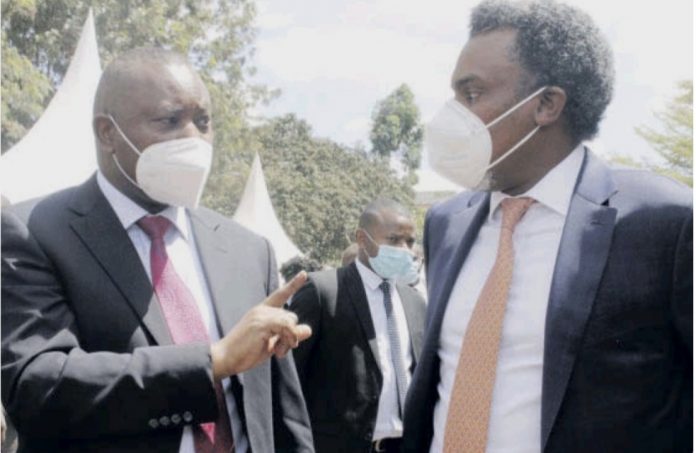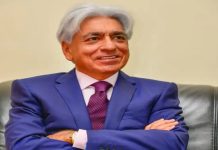BY SAM ALFAN.
Director of Public Prosecution Noordin Haji has been sued for allegedly encroaching on the mandate of the National Police Service.
Other than drawing the boundary between the mandates of the two institutions, activist Okiyah Omtatah has petitioned the High Court to quash guidelines recently published by the DPP titled, “Guidelines on the Decision to Charge, 2019”.
“A declaration be made that Section 5(2)(b) & (3) of the Office of the Director of Public Prosecutions Act No. 2 of 2013 is unconstitutional and therefore, invalid, null and void,” he said.
Omtatah further wants the constitutional court to declare that the principal decision to charge or not to charge a suspect with a crime and registering such a charge in court is the culmination of and an integral part of the investigative process and it is strictly the exclusive mandate of the Police.
According to Omtatah, the DPP’s mandate to institute and undertake criminal proceedings commences only where a charge is contested but the DPP, he said does not have any mandate in the criminal investigation process and has no capacity in law to call for police files before formal charges are laid in a court.
He further seeks that the court to declare that the DPP’s practice of endorsing or approving miscellaneous criminal applications made by the police, including police applications for custodial periods to hold suspects for further investigations, before the applications are filed in court, is unconstitutional.
Omtatah wants the court to rule that the DPP has no capacity in law to endorse charge sheets before they are registered in court and he does not have any powers or role to play in drawing, signing and presenting a charge sheet in court.
“A declaration be made that to be binding, any subsidiary legislation purporting to set out the exercise of the powers and functions of the DPP must be published in the Kenya Gazette before they become effective,” he said.
Omtatah argues that the Criminal Procedure Code (CPC) lays down the procedures to be followed in criminal investigations and proceedings and the roles and duties of the various entities and or players in the criminal justice system.
He urges the court to compel the DPP to abide by the various laws, including the Constitution, which govern the procedure to be followed in laying charges before a court of law and instituting criminal proceedings.
He is also aggrieved that the Guidelines were developed and enacted without public participation and in contravention of the Statutory Instruments Act, 2013 and they are null and void.
“I am aggrieved further that the Guidelines trump the concept and rationale for the doctrine of checks and balances which counterbalances influences by which State organs or systems are regulated, to typically ensure that absolute power is not concentrated in the hands of individuals or groups,” he adds.
He said through checks and balances, the Constitution set in place various mechanisms to reduce mistakes, prevent improper behaviour, or decrease the risk of centralization of too much power.
He said the doctrine of checks and balances is the fulcrum or the central pillar in the architecture limited power that runs through the entire constitution and the doctrine informs the architecture of the Constitution with regard to police independence in investigations and the need to hold the DPP accountable. But he said the Guidelines dismantle all these.
Omtatah said once the checks and balances are done away with in practice, the DPP will be in a position to selectively direct prosecutions to achieve undisclosed collateral purposes, including against those the system considers undesirable or for improper motives or corrupt practices.
“This court is enjoined to intervene and quash the Guidelines and to determine the boundary in law between the NPS and the DPP to end the turf wars between these two important institutions, which wars are obstructing the administration of criminal justice in Kenya” he adds.
He adds that guidelines do not distinguish between a suspect and an accused person and the differences between the decision to charge suspects, which is an exclusive function of the police, and the decision to institute criminal proceedings against accused persons which the Constitution reserves exclusively for the DPP.
“The CPC gives police audience with the court in the process of investigations, without reference to the DPP. Sections 36A and 89 are among those relevant to the issue of charging suspects and the institution of criminal proceedings,” he stated.







